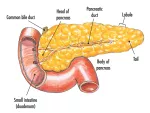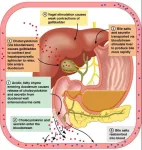
The hypothalamus is a section of the brain responsible for the production of many of the body’s essential hormones, chemical substances that help control different cells and organs. The hormones from the hypothalamus govern physiologic functions such as temperature regulation, thirst, hunger, sleep, mood, sex drive, and the release of other hormones within the body. This area of the brain houses the pituitary gland and other glands in the body.
Although this portion of the brain is small in size, it is involved in many necessary processes of the body including behavioral, autonomic (involuntary or unconscious), and endocrine functions, such as metabolism and growth and development.
The hypothalamus\' primary function is homeostasis, which is to maintain the body\'s status quo system-wide. Hypothalamic hormones include thyrotropin-releasing, gonadotropin-releasing, growth hormone-releasing, corticotrophin-releasing, somatostatin, and dopamine hormones. These hormones release into the blood via the capillaries (small vessels) and travel to the pituitary gland. Oxytocin and vasopressin are also hypothalamic hormones.
The hypothalamus uses a set-point to regulate the body\'s systems, including electrolyte and fluid balance, body temperature, blood pressure, and body weight. It receives inputs from the body, then makes the proper changes if anything differentiates from this set-point. The set-point can temporarily change, but remains remarkably fixed from day-to-day.










